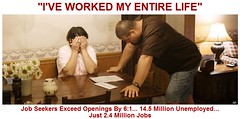
In the good old days when money grew on trees, we could all afford most of the things we wanted when we wanted them. With credit like a tap to release a flood of money on demand, the new car and expensive lifestyle were all within reach. All we had to do was keep the job and watch the value of our homes grow to give us the security we needed for all this borrowed money. Now the world has turned on its head. Credit has dried up, we have rising unemployment and house prices have plunged into the depths. The result? We all have to learn to be a little more frugal. Like our grandparents, running a household budget is a necessity. The advantages of a set of accounts are we can all see how much everything costs and, more importantly, see where we can save dollars. Better still, running a set of numbers for each month shows us whether our hopes of saving money are working. Too often, we have great plans but prove not so good at making them work. A set of accounts keeps us honest about whether we are really saving money.
So where to start? The first step is to remember the difference between wants and needs. We all need a roof over our heads, food to eat, clothes on our backs and some way of getting around. Everything else is a “want”, a potential luxury we could probably do without. Two years ago, we might have played catch up with the neighbors, always looking to buy the biggest and best. Now we have to ask the hard questions. When it comes to transport, for example, we probably need a car – public transport in most cities is poor and once you get out into the suburbs and exurbs, personal transport is almost certainly a “need”. But we can make do with the current car for years so long as we spend the money on maintenance and repair. There’s no need to run out and buy the latest sport utility. All that does is bust the budget when uncertainty over jobs is at its highest.
So let’s start with a simple set of rules for money saving. If you can do without, don’t buy it. If it’s a “need”, try borrowing when you do need it or buy second-hand. Looking around the neighborhood, there are likely to be garage sales as people try to pull in a few dollars to help pay the bills. Now’s the time to start looking for the things you do need at never-to-be-repeated prices. If there’s no choice and you have to buy new, always remember the price you pay for a big-name brand covers the cost of all the advertising and marketing to keep the name fresh in your mind. There are always cheaper alternatives. Often these alternatives are just as good (if not better) than the branded goods. Finally, always try to pay cash for what you buy. If there’s no choice, always put the buys on the cards with the lowest rate of interest. When it comes to keeping your budget under control, look out for more money saving tips on this site.
Image taken on 2009-09-26 21:49:56. Image Source. (Used with permission)
Related posts:
- Should You Accept a Low-Paying Job Offer or Stick With Unemployment Benefits?
- Seven Tips to Get Your Ideal Job… Faster and Easier
- Seven Tips to Get Your Ideal Job? Faster and Easier
- Executive Job Search: 3 Jobseeking Ways to Find a Job Faster
- How to get a high paying job, How to get an executive job